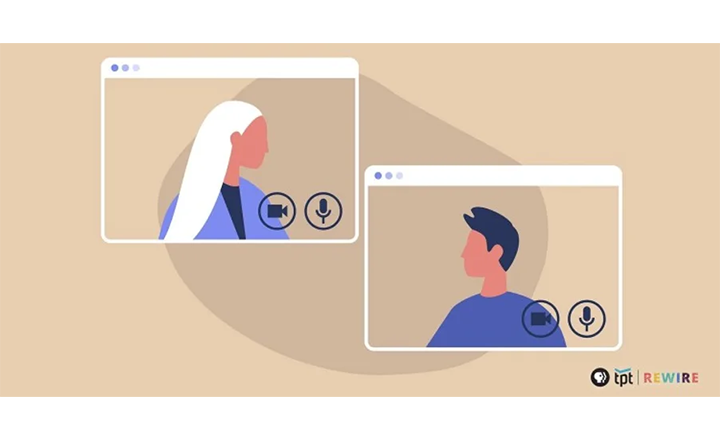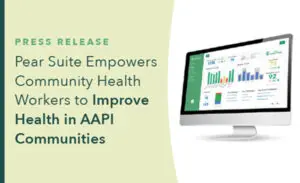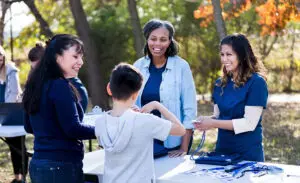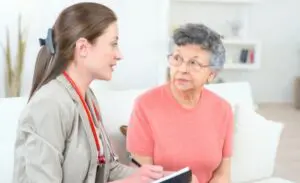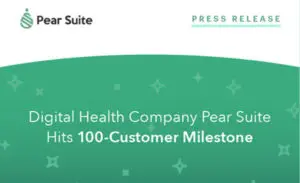By Colby R. Takeda
Originally published on Rewire on January 27, 2021
I recently met Gayle, a high-spirited, 60-year-old Austin, Texas, resident. We found each other through Big & Mini, a free intergenerational video conferencing service founded by three students in response to shelter-in-place orders. I easily registered online and within a week, I was talking with Gayle from my home in Honolulu, Hawaii.
She admitted that she expected a younger “mini” (I’m 31), but nonetheless, we had a joyous hour-long video chat about our careers, life changes during the pandemic, and racial tension across the country. We also agreed that if we were ever in the same city, we would meet up at a local coffee shop (or a bar, since she loves a good cocktail).
I was shocked when she called herself an “extreme introvert who is usually on the quiet side”—her chatty, yet warm demeanor was the complete opposite of that and so enjoyable. I’m glad she took a risk by hopping on that call with me. I made a new friend.
Gayle is clearly in the 73% of older adult internet users who are now using the internet (up from 14% in 2000)—she actually got on the video call before me—but what about the other 27% that aren’t gaming with Houseparty, joining Zoom happy hours, and learning new dance routines on Tik Tok?
Long before the COVID-19 crisis, older adults were already experiencing a mental health epidemic due to loneliness and social isolation. AARP data reveals that one in three adults ages 45 and up are lonely. Loneliness and social isolation increased the risk of infections, heart attacks, stroke, and cognitive decline, which increases costs to our healthcare system. Every month, Medicare spends about $134 more for the care of isolated older adults, totaling $6.7 billion more in U.S. healthcare expenses every year.
Several companies are keeping older adults socially connected with phone and video call services, such as Mon Ami, MyHello Line, and Big & Mini, the service I tried.
Talking to Gayle brought back memories of my pen pal, Yuya, whom I met while studying at Willamette University in 2008. Our email exchanges helped me earn a B in my Japanese class, and I made a new friend along the way. This was probably the last time I used the term “pen pal,” and with the advent of social media, writing friendly e-mails and sending letters with postage stamps seems to be a thing of the past.
But the modest act of sending a friendly postcard or letter could go a long way to address (pun intended) loneliness and social isolation during a global pandemic.
The Silver Post is a subscription service that mails personalized postcards to aging loved ones. You simply text a short message and photo from your phone and the company sends a photo postcard for you. Carolyn, one of the co-founders, says that her service has seen a 30% increase in new members in the past four months.
In 2013, 14-year-old Jacob Cramer founded the nonprofit Love for the Elderly with the simple goal of sending handwritten “letters of love” to older adults across the country. He’s no longer doing this alone, as the COVID-19 crisis has inspired hundreds across the United States to also deliver cards and letters to isolated seniors.
Certainly, video chats, postcards, and letters will not be enough to flatten the loneliness curve, but if we use these modern and traditional techniques to build stronger intergenerational connections, we can really start to move the needle.
Just like my new friend Gayle, let’s challenge ourselves to get out of our comfort zone and make new COVID-19 friends.
Colby R. Takeda is Co-Founder & CEO of Pear Suite and a CoGenerate (Formerly Encore.org) public voices fellow with The OpEd Project.
This op-ed was originally published by REWIRE, a PBS company, on January 27, 2021.
